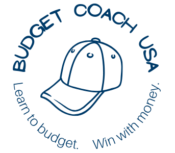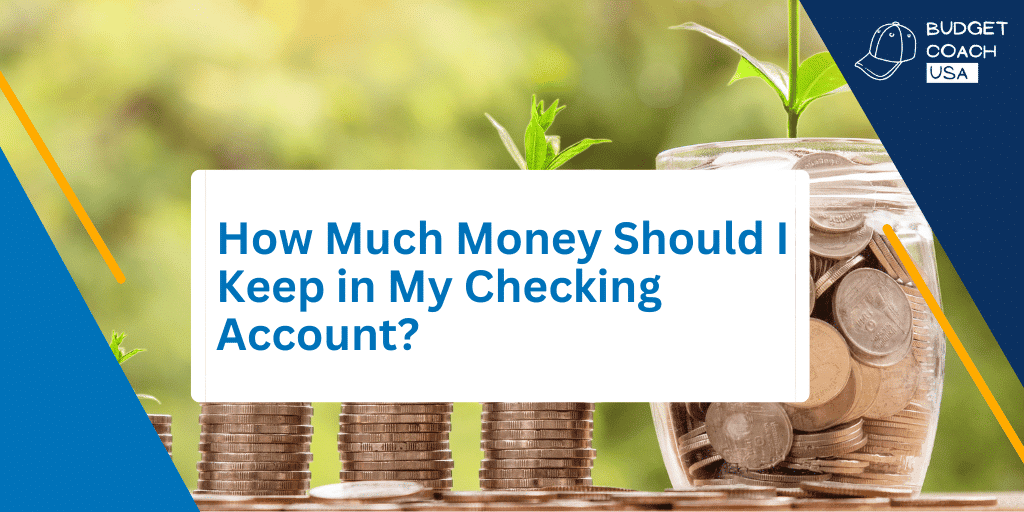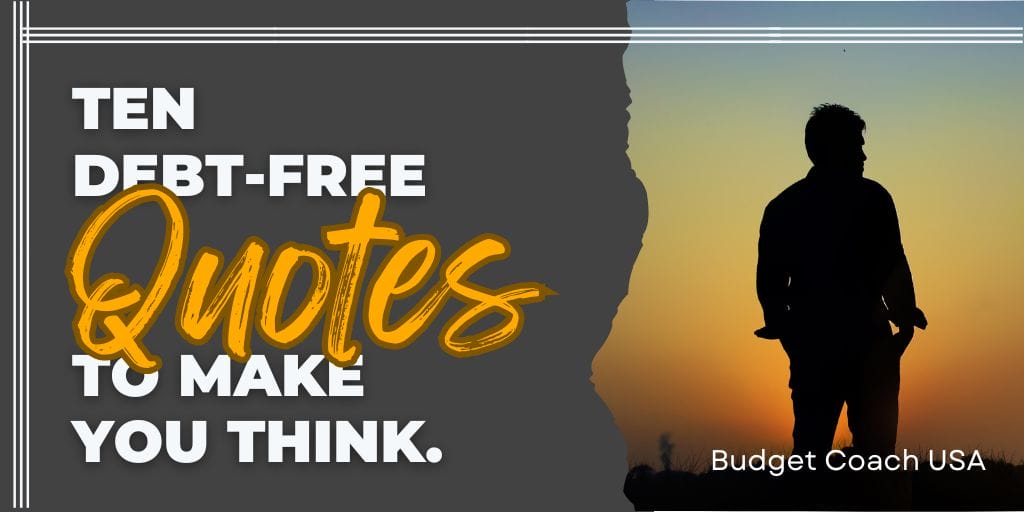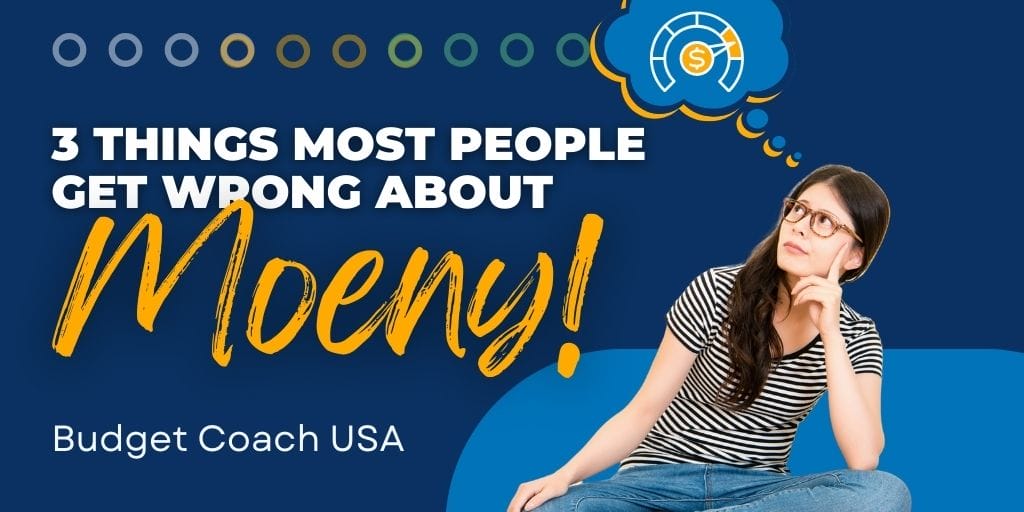Why am I Always Broke?
Money is one of the most critical aspects of our lives, yet it can also be a significant source of stress and anxiety. For many people, the struggle to make ends meet each month is a common experience. Despite working hard and trying to save money, they always seem to be broke. If you’re one of those individuals who feel like their bank account is constantly empty, you may wonder why am I always broke? In this article, we’ll explore some possible reasons why you might always find yourself short on cash – and what steps you can take to turn your financial situation around.
Why Am I Always Broke & 5 Ways to Fix It!
1. You Are Not Budgeting.
A zero-based budget is the pillar of financial control. It guides your money confidently thru a maze of endless distractions and temptations so that it can arrive at its budgeted destination unharmed and ready to do its job. If you are not using a zero-based budget, you are much more likely to be broke and stressed about money.
Here are some common objections to using a budget.
- I don’t make enough money to need a budget. No matter how much you make, you need a budget! A budget shines a light on your spending habits and can add money back into your pocket. A budget equals more money in your bank account.
- I don’t really spend much money anyway so a budget wouldn’t change anything for me. Really? Why are you broke? Get a budget.
- I already track the money I spend so I don’t need a budget. Tracking your money is not the same as using a budget. That is like saying just because you look at the speedometer when driving you couldn’t possibly be speeding. Watching your money being spent isn’t a budget. Telling your money where to go: that is a budget!
How To Fix it.
Start a zero-based budget so you can not only track your money but tell it where to go and make it behave! Learn how to make a budget and stick to it here.
2. You Do Not Have An Emergency Fund.
If you always feel broke, it might be because you reach for the credit card whenever you have an emergency. When you take on debt, for any reason, you are limiting your future ability to save money. It is just math. So when you use debt to pay for emergencies, you are limiting your ability to get ahead and this could be a reason you always feel broke.
How To Fix it.
- Break the cycle of debt by saving an emergency fund – It is recommended to have 3 to 6 months of household expenses set aside in case of emergencies.
- Redefine “emergency” – Emergencies are things that threaten your ability to earn a living or be safe. Save your emergency fund for things that are true emergencies and distinguish them from inconveniences. Inconveniences are not fun, but using your emergency fund on them will add risk to your finances. Emergence funds should reduce risk, not increase it.
3. You Are House Poor.
There is nothing wrong with wanting a nice, large home to live in if that is your desire. But when you have more house than you can afford we call it “house poor”. House poor means that too much of your monthly take-home pay is going toward your mortgage or rent. There are few other things in your monthly budget that can cause you to feel broke more than being house poor. If your mortgage or rent is more than 25% of your take-home pay you will begin to feel it. When that percentage rises to 30-35% even the best budgeting wizards will feel the squeeze on an everyday basis. When your mortgage or rent rises to or above 40% of your take-home pay it can cause severe financial distress for anybody. You might be asking why you always feel broke if your mortgage or rent is more than 25% of your take-home pay.
How To Fix it.
There are no easy answers here. There are just 2 ways to fix being house poor.
- Increase your income so your mortgage or rent is 25% or less of your take-home pay.
- Find new living arrangements and reduce your mortgage or rent to at or below 25% of your take-home pay.

4. You Think Of Debt As A “Tool”
Debt = Risk. Period. Debt is what you use when you admit you didn’t save enough money or plan far enough ahead to pay cash for whatever you want to go into debt for. When you introduce debt to your personal financial profile you introduce risk and truncate your ability to build wealth. You’ll read in other places that there is a difference between “good debt” and “bad debt”. In our opinion at Budget Coach USA debt equals risk and should always be avoided except for a mortgage in which you pay 20% down on your home.
When you are giving your income away to monthly payments on cars, credit cards, vacations, and more you are limiting your ability to get ahead financially and this is one reason you are asking “Why am I always broke”?
Debt is not a tool. Debt is what you incur when you didn’t plan properly. Plan ahead, use a budget, and stay out of debt.
How To Fix it.
Set out on your debt-free journey today. Learn here how to pay off your debt and find the peace financially that you are looking for.
5. You Are Not Investing.
What would you call a person who budgets their income monthly and has zero dollars left at the end of every month? Are they broke? What if I told you that the reason they have zero dollars left at the end of the month is that every dollar they earned was assigned to a job including their retirement investments? Are they still broke?
It is hard to feel broke if you are investing in your retirement by saving 15% of your income in qualified retirement accounts. If you had a tight budget that included very little discretionary money at the end of each month but had $250,000 in retirement funds at age 40 would you feel broke?
How To Fix it.
Begin today by investing 15% of your gross income into retirement. Can’t do 15%? Do 10% and work your way to 15% over time. The important thing is to start.
- First, take advantage of your employer’s retirement match program if they have one.
- If you still have more to invest, open a ROTH IRA for your after-tax dollars earned.
- If you still have more to invest, open a traditional IRA account.
The Chinese have an old proverb. “The best time to plant a tree was 20 years ago. The 2nd best time is now.” The most important thing to remember about investing is to start.

6. You Are Trying To Keep Up With Your Friends And Neighbors.
Trying to keep up with your friends and neighbors’ lifestyles is a recipe for financial distress. Keep a couple of things in mind when trying to keep up with your friends and family when it comes to your lifestyle.
First, they may just have more income making their lifestyle sensible for them. Some people earn more. Congratulations to them. But trying to keep up with them on your income is a bad idea.
Second, they may look good on the exterior, but on the inside, they are more broke than you are. Don’t judge the book by its cover.
Trying to keep up with your friends and neighbors lifestyles for the sake of comparison is silly and counterproductive. If you are spending money competing in the game of comparison it is no wonder you are asking “why am I always broke”? Learn more money mistakes people make.
How To Fix it.
Live your life, not theirs! Taking on debt or spending money that you can’t afford only adds risk to your life and increase your chances of a financial meltdown.
- Decide what you want for your life independent of your friends and neighbors.
- Adjust your budget accordingly.
- If necessary, adjust your income and professional ambitions accordingly.
- Don’t spend money you don’t have to keep up with people you might not even like.
Final Thoughts – Why Am I Always Broke?
If you want to know why you are always broke start by looking at yourself and your habits. You are in charge of your money, where it goes, what it buys, and how or if it is saved, invested, or spent. If you always feel broke, begin with the following steps to financial wellness.
- Save a starter fund of $1,000. This will help you avoid reaching for the credit card for the next unexpected expense.
- Pay off all of your debts. Start by listing all of your debts except for your mortgage. Put them in order by balance from smallest to largest—regardless of interest rate. Pay minimum payments on everything but the little one. Attack that one with a vengeance. Once it’s gone, take that payment and put it toward the second-smallest debt, making minimum payments on the rest. That’s what’s called the debt snowball method, and you’ll use it to knock out your debts one by one.
- Save a full emergency fund of 3 to 6 months of household expenses.
- Simultaneously begin the following:
- Begin investing 15% of your gross income into retirement.
- Begin saving for your child’s college education.
- Use any other available funds to pay off your house early.
- Be generous, help others, and love your debt-free life.







